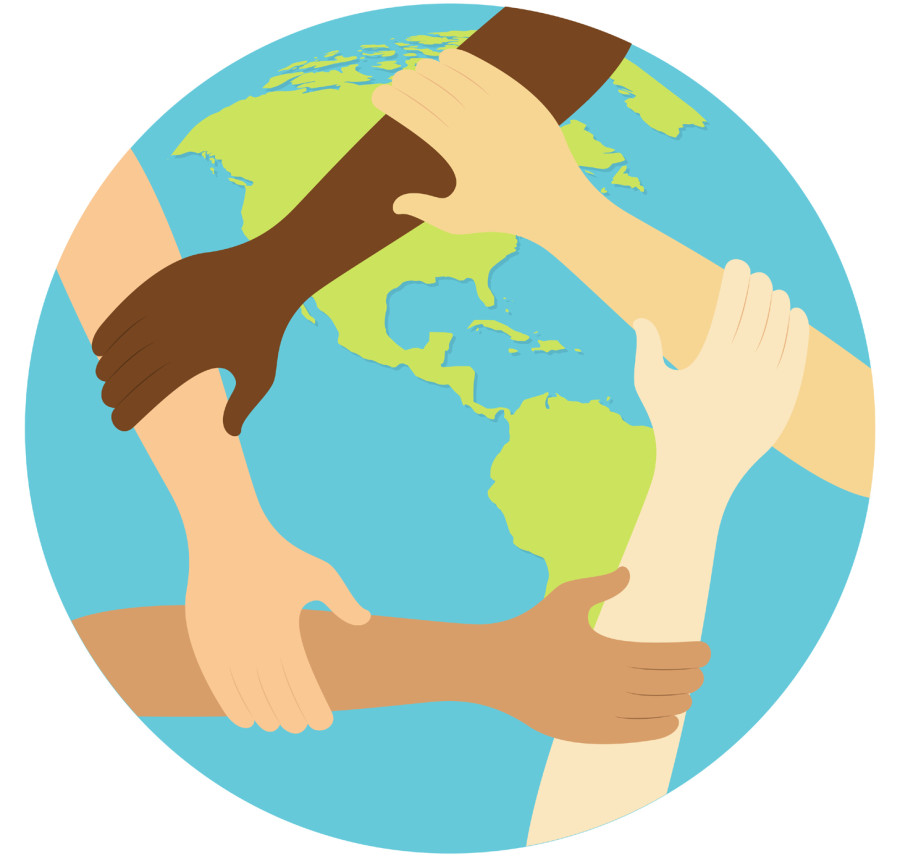Columns
And the world will live as one
Countries should fully utilise the effects of globalisation, but also ensure national identity.
Illa Mainali
National identity is the idea of a nation as a cohesive whole, as represented by distinctive traditions, culture and language. National identity ensures cultural homogeneity, nationality and a common background with fellow citizens. Family, race, religion, history, culture, tradition and nationality make up the identity of any individual, and are essential too.
Globalisation is a process of global economic, political and cultural integration. In this process, all the nations of the world with interconnected and interdependent economies have to come together and accept national problems as world problems; and all the nations of the world have to share responsibility in dealing with problems like hunger, disease, poverty, unemployment, illiteracy and racism affecting the world community.
Diminished nationalism
Currently, it is not possible to ignore the most essential processes of globalisation operating in the world linked to the vast extensions of market relations and economic, political and cultural interactions which are turning this world into a global village. The relationship between globalisation and national identity is quite confusing. While some people say that globalisation reduces people's identification with their nation, others say the exact opposite happens.
In the first argument, in which globalisation seems to diminish nationalism, the era of globalisation is posing a variety of challenges to national identity. It says that globalisation has diminished nationalism, through increased interdependence and the weakening of national barriers between countries. It is seen as a process that is destroying the heritage and culture of different ethnic groups around the world. Globalisation is bringing cultural dominance of the West over the rest of the world.
Along with the flow of technology across borders, the ideas and values of the West are becoming the standard of the whole world. In other words, products and ideas developed in rich countries are shaping the values and ideas of the poor countries. However, the other group argues that globalisation is a boon. New technologies and the 'information revolution' are bringing our world closer together; and making nations, economies and cultures increasingly interdependent. This is a positive force to unify societies.
The phenomenon of cultural exchanges brought by globalisation is enriching the world. It is promoting diversity and transforming the world, such that ideas and practices can be freely exchanged and appreciated. Globalisation will bring friendship, harmony and international cooperation. Despite all the countries independently working for their best interests, we all come together in ways to make the world a better place. When nations work together to reach common goals, the goals are achieved at a faster pace; resources are pooled together to make this happen.
Developing countries like Nepal have definitely been affected by globalisation. The economies of these countries have improved under the influence of globalisation. The size of foreign direct investment has increased, and a lot of bad traditions and taboos have been erased. But globalisation has also brought many drawbacks.
Local cultures and traditions are being erased. Traditional clothes and languages are being replaced by Western fashion and tongues. Violence and drug abuse have increased. Diseases have also spread as an effect of globalisation. Western dominance and loss of cultural identity are the main disadvantages.
However, the advantages of globalisation beats the disadvantages in the developing countries in many ways. The benefits of globalisation include improved living standards, lowered costs for goods, increased technology transfer, and easy access to foreign countries and cultures. Global competition can encourage creativity and innovation, increased free trade, easy access to world travel and job transfers, among others.
Like other least developed countries, Nepal has also benefited from the process of globalisation. There have been positive effects on good governance, people's participation, civil society and human rights. Modernisation of the economy, expansion of export markets for Nepali products, international standard school education and foreign employment opportunities are other benefits. Globalisation not only helps developing countries to deal with the rest of the world and increase their economic growth, it also contributes to developing health and education systems.
Golden age
In order to preserve and promote national identity in this age of globalisation and benefit from both, we need to explore democratic models of governance from across the world, and learn effective political practices. Further, we need to ensure justice and equality for all, and promote equitable economic development. Importantly, in this pursuit, Nepal must not forget to create institutional preconditions for national identity, develop a national culture, strengthen the cultural significance of national identity, and promote community development.
Globalisation has created great opportunities for people in both developed and developing countries. This is the golden age for business, commerce and trade. Rather than fearing the future, we should magnify our efforts at international economic cooperation. We must strengthen global and regional institutions to promote open trade and investment and prosperity for all. This is the best way to ensure that the benefits of globalisation will spread to all corners of the world and to all sectors of society. Emphasis should be given to cashing in the effects of globalisation to promote sustainable development, alleviate poverty and encourage economic reform. Therefore, each country should fully utilise the effects of globalisation, but also ensure national identity.
***
What do you think?
Dear reader, we’d like to hear from you. We regularly publish letters to the editor on contemporary issues or direct responses to something the Post has recently published. Please send your letters to [email protected] with "Letter to the Editor" in the subject line. Please include your name, location, and a contact address so one of our editors can reach out to you.




 14.12°C Kathmandu
14.12°C Kathmandu















